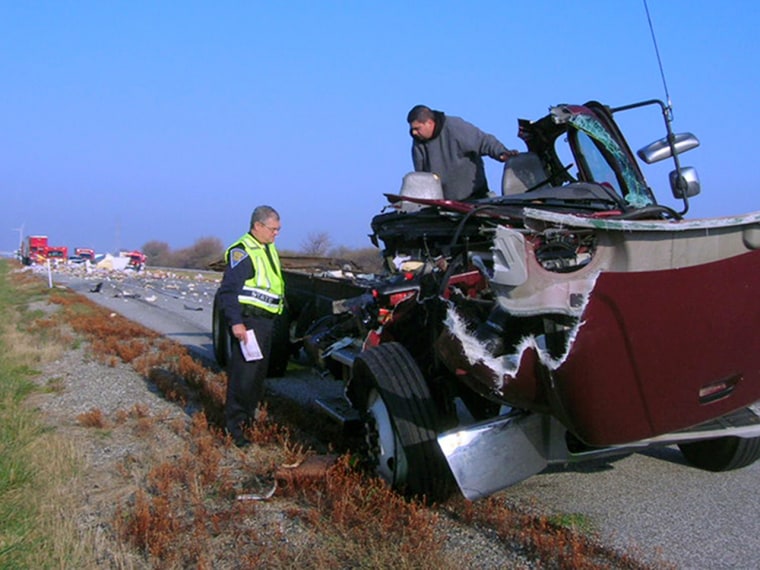The dangers of texting while driving gets more headlines and drunk driving remains one of the main causes of automobile accidents, but a large, new study published Monday helps explain why so many teens and young adults are involved in motor accidents.

They're sleepy.
Report after report shows it -- sleepy drivers cause car crashes. In the new study, researchers at The George Institute for Global Health in Sydney, Australia suggest that a long-term lack of sleep may not only cause immediate drowsiness at the wheel, but may affect a young driver’s judgment over time.
“Less sleep per night significantly increased the risk for crash for young drivers,” the researchers wrote in the American Medical Association journal JAMA Pediatrics.
Alexandra Martiniuk and colleagues studied the driving records of more than 19,000 young men and women, aged 17 to 24, who had just received their driver’s licenses. These new drivers had filled out questionnaires that included specific details about how many hours sleep they got each night in the previous month.
Then the researchers went through police records on road crashes for the next two years after the drivers were licensed.
“Those who reported sleeping six or fewer hours per night had an increased risk for crash compared with those who reported sleeping more than six hours,” they wrote. The people who slept the least were 21 percent more likely to have been involved in a crash than those who got more sleep, Martiniuk’s team found.
On the weekends, the risk rose even more. Those who got six hours or less sleep on the weekend were 55 percent more likely to be in a crash than those who slept more.
It’s a global problem affecting not only young drivers, they noted. “For drivers of all ages, estimates in the United States, United Kingdom, and Australia report that between 5 percent and 30 percent of crashes are attributed to fatigue,” the researchers noted. “Not only are they more likely to have sleep-related crashes; these crashes are more likely to be fatal compared with other crash causes.”
The AAA Foundation published a survey last year that found one in seven licensed drivers ages 16-24 admits they had fallen sleep at least once while driving in the past year and that 10 percent of all drivers say they’ve dozed off at the wheel. The Centers for Disease Control and Prevention found that 5 percent of adults aged 18 to 44 admitted to nodding off at the wheel.
One in six crashes with a fatality was caused by a drowsy driver, according to the National Highway Traffic Safety Administration (NHTSA).
The NHTSA says sleepy driving is involved in 100,000 crashes serious enough to generate a police report each year. Such crashes have killed more than 1,500 Americans and injured 71,000.
Sabrina Birch was one of those victims. According to the Daily Oklahoman and other media reports, Birch, 17, was thrown out of the pickup truck when her boyfriend, Colby Ruthardt, also 17, fell asleep at the wheel and crashed last November. The Gracemont, Okla. teen died from her injuries.
Martiniuk’s team found some suggestion that a lack of sleep may affect other behaviors, too.
“Risky driving, sensation seeking, self harm ... and greater drug and alcohol intake were reported more often by individuals who obtained less sleep,” they reported. It’s not clear whether a lack of sleep was a cause or a symptom, but they said the finding points the way to doctors, parents and others trying to help.
They also noted direct measures that can help prevent crashes caused by sleepy drivers. “Changes to road design (eg, tactile road edges and divided highways), as well as education campaigns, may help reduce crash risk,” they wrote.
“Using a rest stop, drinking coffee, and playing the radio while driving have been shown to be significantly protective against crashes, at least in the short term,” they added.
Related: